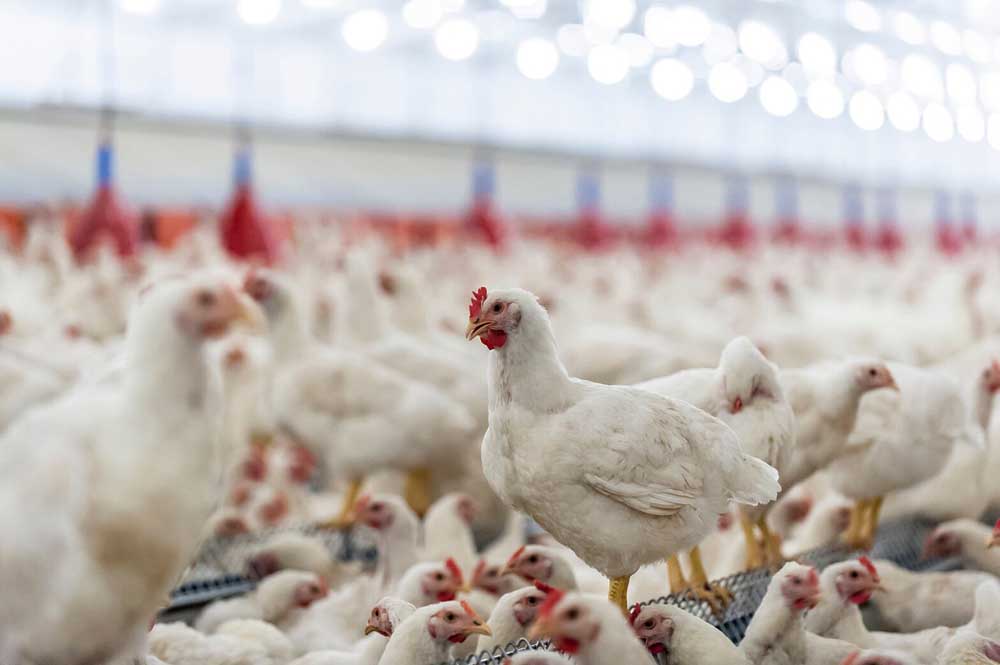Highly contagious avian flu confirmed in Idaho
Published 1:15 pm Friday, April 15, 2022

- Bird flu continues to spread along the West Coast.
Avian flu has been found in two flocks of domestic chickens in Idaho, the state Department of Agriculture says.
The department received confirmation from USDA of several cases of Highly Pathogenic Avian Influenza virus — known as HPAI — in two separate flocks of chickens in Gooding County and Caribou County.
The affected flocks appear to be unrelated, ISDA said.
Gooding County is in south-central Idaho, and Caribou County is in southeast Idaho. They are roughly 200 miles apart.
The cases were confirmed through a coordinated effort between ISDA and USDA Animal and Plant Health Inspection Service. Following preliminary results, the final determination was made by USDA’s National Veterinary Services Laboratory in Ames, Iowa, said Chanel Tewalt, ISDA deputy director.
The virus was found in several birds in the two small flocks. One is defined as a poultry operation, meaning it sells or gives away poultry, eggs or meat. The other is defined as a non-poultry domestic operation, which does not distribute products, she said.
Upon confirmation, a hold order was put on the infected flocks so birds don’t leave the property. The entire flock on each property will be depopulated as soon as possible, she said.
The virus “is highly contagious, which is why there’s such a rapid response with depopulation efforts,” she said.
It had not been detected in domestic flocks in Idaho before now, but it was detected in wild birds in the state in 2015 and 2017. Low Pathogenic Avian Influenza was detected in domestic birds many years ago, she said.
USDA confirmed HPAI in Massachusetts, Wyoming, North Carolina and North Dakota in March. The agency confirmed HPAI in Colorado, Montana and Texas in April.
HPAI is carried by migratory waterfowl. Idaho is within the Pacific Flyway. Domestic birds and poultry are susceptible to morbidity and mortality once infected.
HPAI is transmitted between birds through close contact, fecal matter and sometimes as an aerosol. It is often carried on objects such as tools, vehicles, clothes and boots, which can transfer the virus from one location to another.
Signs of HPAI in domestic poultry frequently include decreased appetite and activity, respiratory difficulty, dark combs and wattle and unexplained mortality.
ISDA said it is essential for poultry owners to be vigilant in monitoring for illness and contact the ISDA State Veterinarian immediately when HPAI symptoms are confirmed. HPAI is a reportable disease in Idaho, and veterinarians are required to report detections to ISDA.
It is uncommon for humans to become infected, but symptoms may include conjunctivitis, fever, lethargy, aches, coughing or diarrhea. Being in direct contact with domestic birds is the highest risk activity. When USDA guidelines for cooking are followed, HPAI is not a foodborne illness.
The best form of flock protection is maintaining strong biosecurity standards. Biosecurity includes limiting the number of people who interact with the birds, washing hands before and after handling the birds and having dedicated clothing and tools for each flock.
ISDA will post updates on the situation on its website at https://agri.idaho.gov .
The virus “is highly contagious, which is why there’s such a rapid response with depopulation efforts.”
Chanel Tewalt, Idaho State Department of Agriculture






